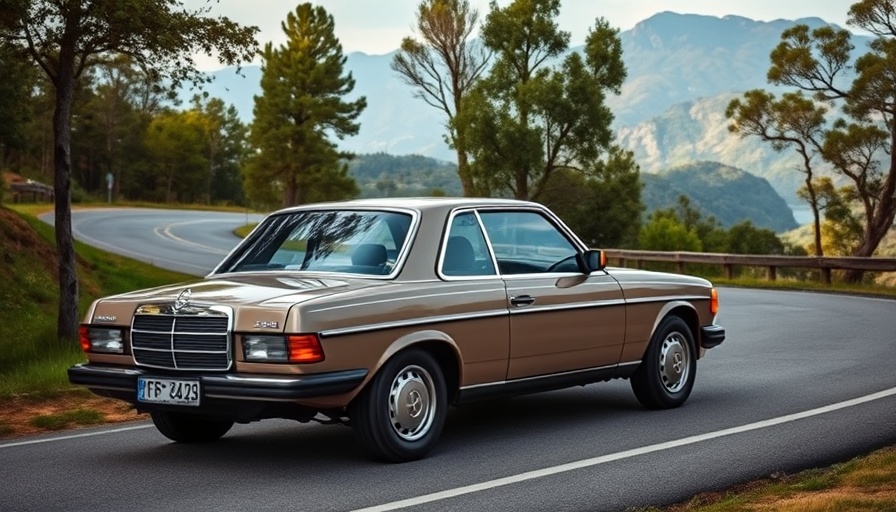
Rediscovering a Classic: The 1982 Mercedes-Benz 300CD Turbo-Diesel Coupe
The 1982 Mercedes-Benz 300CD Turbo-Diesel Coupe is more than just a car; it's a piece of history that boasts engineering prowess and luxury. Known for its durability and fuel efficiency, this model represents a pivotal moment in automotive design. But what makes it so special in today’s market, especially with the rise of electric vehicles?
Historical Context and Background of the 300CD
Mercedes-Benz has always been associated with luxury, and the 300CD Turbo-Diesel Coupe is no exception. Launched during a time when consumers were becoming increasingly conscious of fuel efficiency, the 300CD offered a compelling blend of power and economy through its innovative turbo-diesel engine. It was a step away from the traditional gasoline engines that dominated the market, setting a precedent for what could be achieved with diesel technology.
Why This Information Matters Today
With the automotive industry swiftly moving towards electrification, understanding the legacy of vehicles like the 300CD helps highlight consumer demands for efficiency and performance. The lessons learned from the design and operation of vehicles like the 300CD inform not just car enthusiasts but also manufacturers who are striving for sustainability in their current models. Comparing the efficiency of early diesel vehicles to modern hybrids and EVs can show us a path for the future, blending the reliable ethos of old with the sustainable practices we aspire towards now.
Performance That Stands the Test of Time
The performance of the 1982 Mercedes-Benz 300CD includes a robust 3.0-liter turbo-diesel engine that delivers notable torque, critical for those tricky ascents or quick highway merges. Even decades later, driving this classic can feel remarkably modern—its steering response and suspension design echo the precision vehicles today are built upon. Current car buyers increasingly gravitate towards longevity and resilience in their purchases, making the 300CD’s enduring appeal even more relevant.
Counterarguments: Are Classics Still Worth It?
While diehard fans champion the merits of classic cars, some industry experts argue against investing in older models. Concerns about emissions, fuel economy, and maintenance costs can outweigh the nostalgia these vehicles offer. For an eco-conscious consumer, the classic Mercedes may seem less appealing compared to a sleek new electric car. Yet, enthusiasts argue that classic cars provide invaluable educational experiences regarding car engineering and design evolution, enriching our understanding of current innovations.
Future Predictions: The Impact of Classic Cars on Today's Market
As we look forward, the fascination with vintage models is expected to shape consumer preferences in unique ways. The resurgence of interest in classic cars indicates a desire for authenticity in a world leaning increasingly on digital interfaces. Furthermore, hybrid and electric vehicles are beginning to incorporate retro design elements that pay homage to their predecessors, demonstrating how the beauty of classic design can collide with modern technology.
The 1982 Mercedes-Benz 300CD Turbo-Diesel is not merely an artifact; it serves as a nexus between the past and future of automotive engineering. As car enthusiasts and environmental advocates debate the best routes forward, it’s vital to remember the lessons that classic cars impart. Understanding their legacy allows us to strive for a cleaner, more efficient automotive landscape without losing the beauty and character that vehicles like the 300CD brought to the road.
If you're keen on seeing how the 300CD fits into the evolution of automotive technology, engage with your local automotive community or check online forums. Dive deeper into discussions that honor the past while igniting curiosity about the future. Don't just admire—participate!
 Add Row
Add Row  Add
Add 




Write A Comment